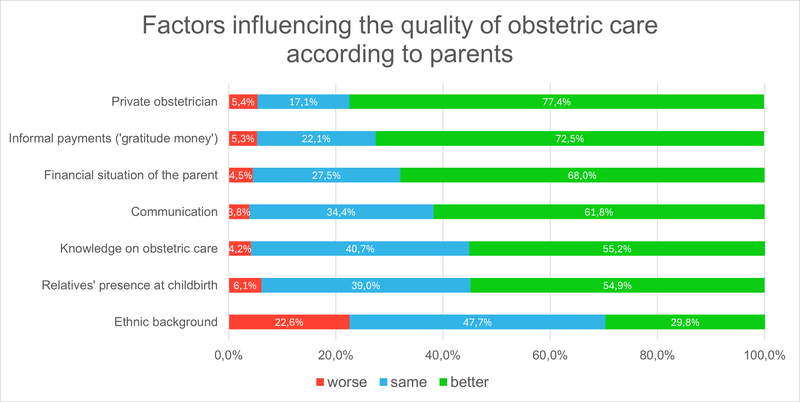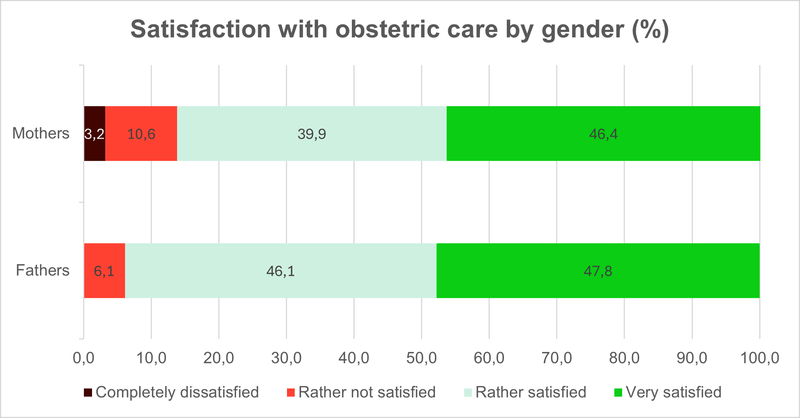Most Hungarians Believe Good Maternity Care Still Requires Informal Payments and Private Doctors

Researchers at Corvinus University examined satisfaction with childbirth in Hungary, focusing particularly on the role of informal payments (“hálapénz”) across different social and demographic groups. The survey was conducted between February and April 2024 on a representative sample of more than 1,500 adults. The study by Orsolya Udvari and Ivett Szalma was published in the journal BMC Pregnancy and Childbirth in April this year.
The results reveal that women are less satisfied with their childbirth experience than men. Among women, 13.8% reported dissatisfaction with the healthcare received during their child’s birth, compared to only 6.1% of men. Those with higher education, people facing financial difficulties, and those who gave birth after the 2020 health law reform also reported significantly lower satisfaction.
Most respondents highlighted financial factors as more important than other aspects like communication when it comes to accessing better maternity care. Nearly 78% believe that choosing a private doctor leads to better care, while 72% see informal payments as a way to secure better treatment. Following these, 68% think that those with better financial means receive higher quality care.
Around 60% of participants also think that good knowledge of the hospital system and effective communication can somewhat or significantly improve care, and 55% say that having relatives present helps as well. Interestingly, only about 10% considered ethnicity to be an important factor affecting care quality.
Those with lower education levels rated nearly all factors (except the presence of relatives) as more important compared to those with higher education. People aged 40 to 59 found all factors significantly more important than younger (18–39) and older (60+) age groups.
“The findings highlight persistent inequalities in fair access to maternity care, which urgently need to be addressed,” said Orsolya Udvari, PhD student and first author of the study. “Targeted campaigns and central information efforts are necessary to ensure that everyone is guaranteed to receive the same access and care regardless of financial status—especially since respondents still see informal payments as useful despite legal reforms.”
The researchers emphasized the need to raise awareness that financial status should not influence maternity care quality. This message is particularly important for people with lower education and those aged 40–59, who tend to believe that better financial means lead to better care at childbirth.

